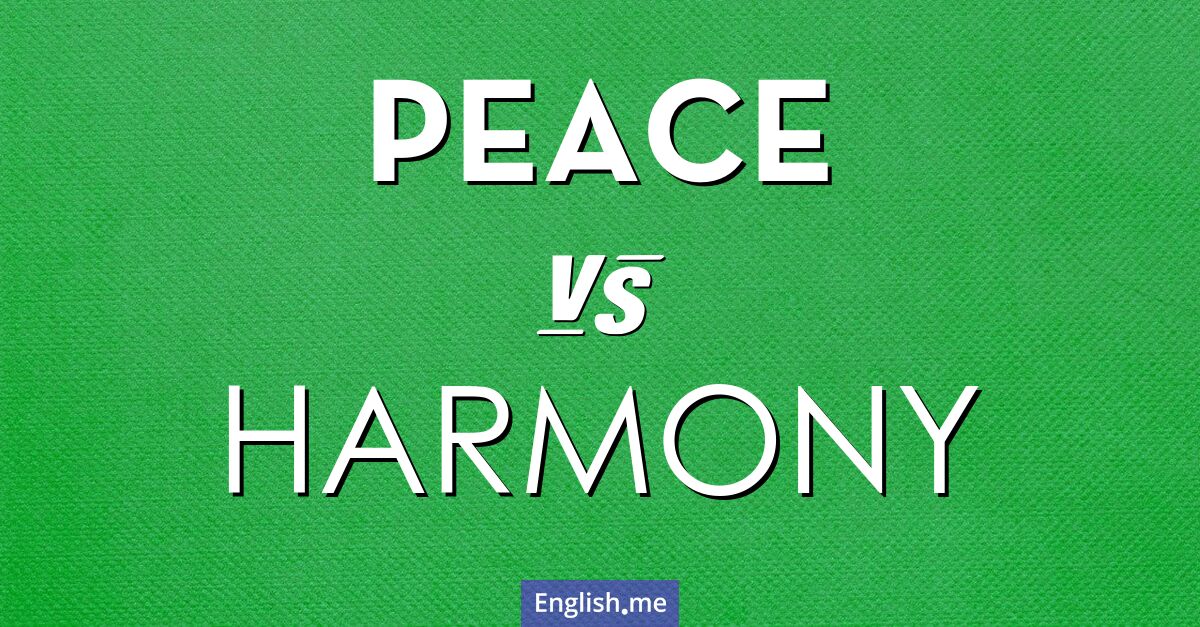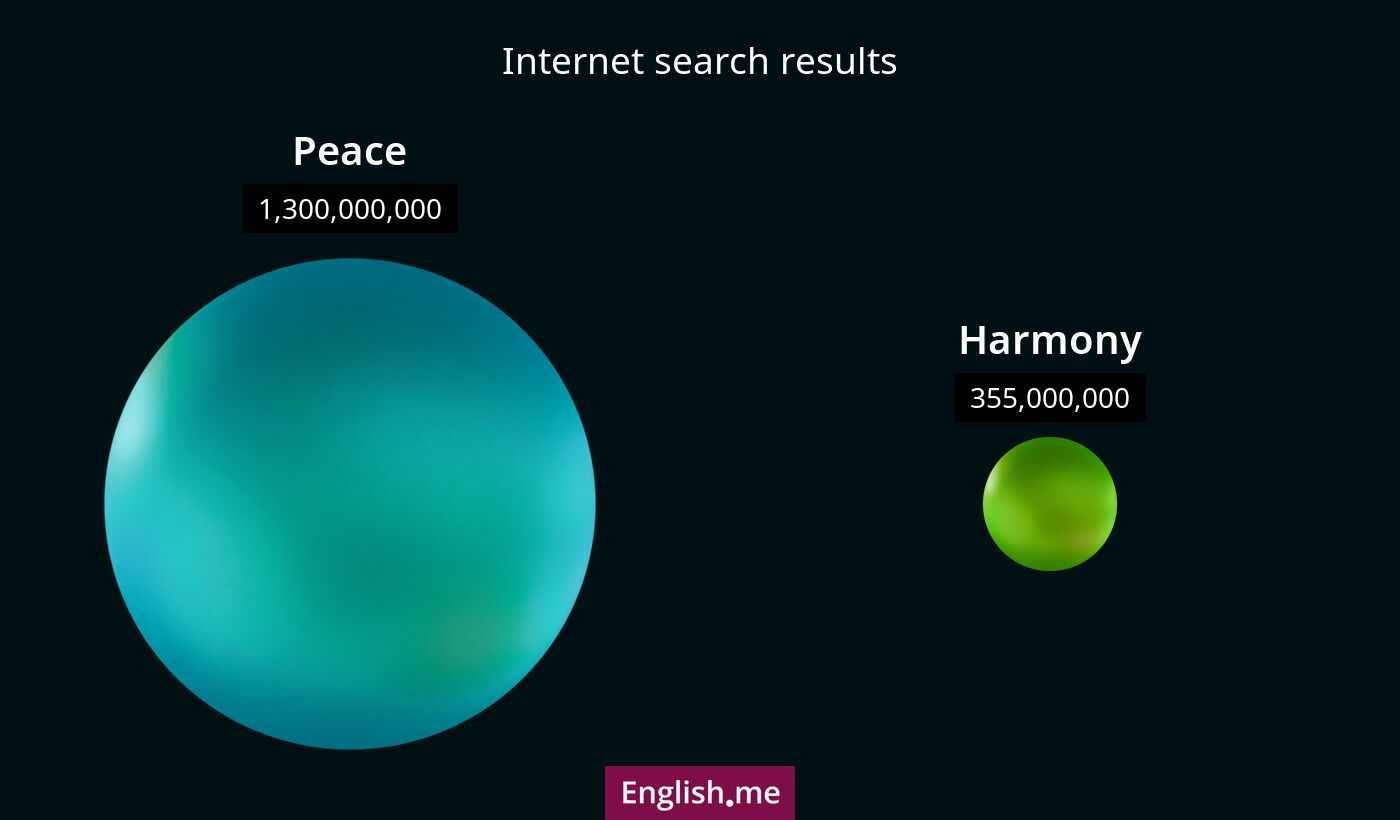"Peace" vs. "harmony": finding balance in language
Reviewed and edited by  Anwar Kareem 08/10/2024, 02:21
Anwar Kareem 08/10/2024, 02:21
English.me team member

 What is similar?
What is similar?
Both "peace" and "harmony" refer to states of tranquility, calmness, and the absence of conflict. They are often used interchangeably in contexts related to social relations, music, or a sense of internal well-being.
 What is different?
What is different?
"Peace" typically refers to the absence of conflict, whether internal or external, and is often associated with societal or global scales, such as peace between countries. "Harmony" emphasizes balance and coordination, often involving relationships and alignment, and can apply to musical, interpersonal, or ecological contexts.
 Which one is more common?
Which one is more common?

 Examples of usage
Examples of usage
Peace- The two countries signed a treaty to establish peace.
- She found peace in the quiet of the mountains.
- The community strives for peace among its diverse members.
- The choir sang in perfect harmony.
- There was a sense of harmony in their collaboration.
- The design of the room creates a sense of harmony.

 English
English español
español française
française italiano
italiano deutsche
deutsche 日本語
日本語 polski
polski česky
česky svenska
svenska Türkçe
Türkçe Nederlands
Nederlands